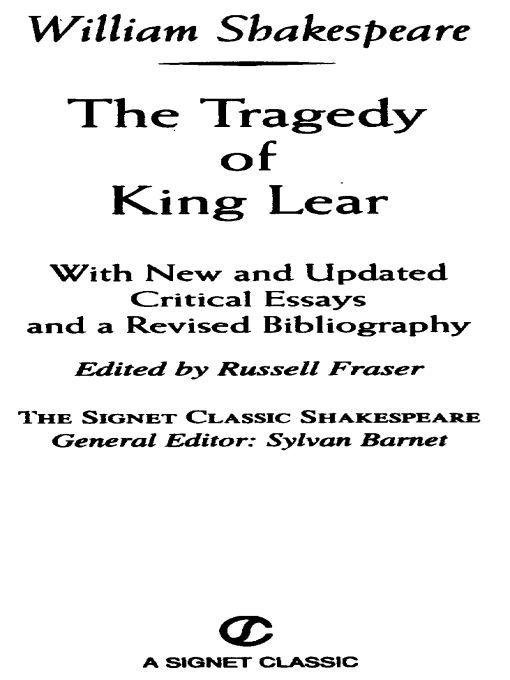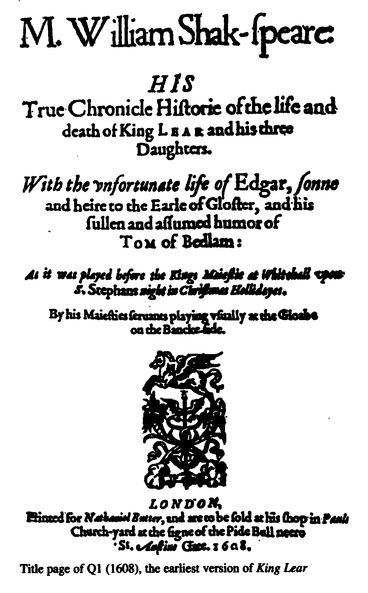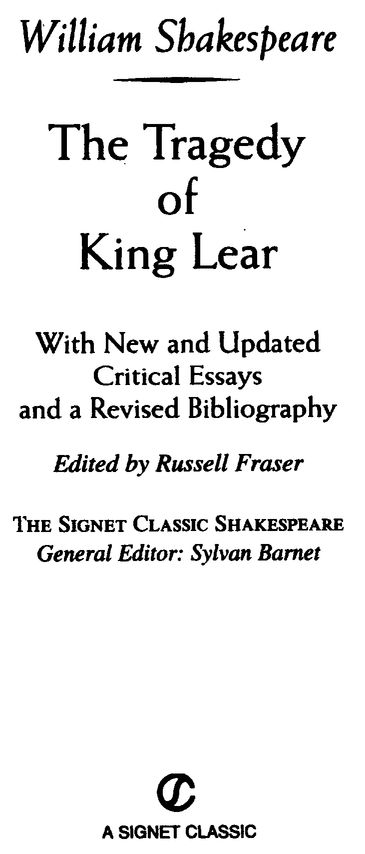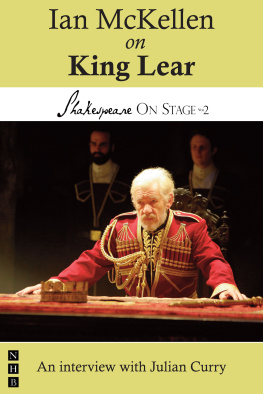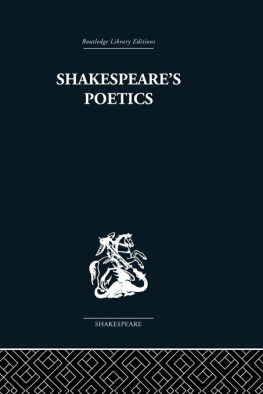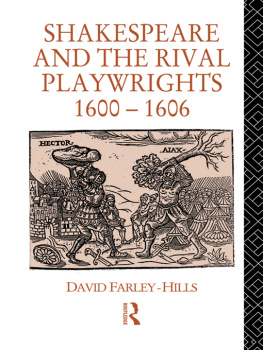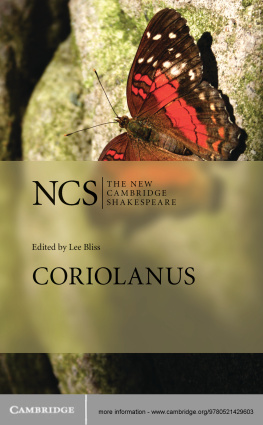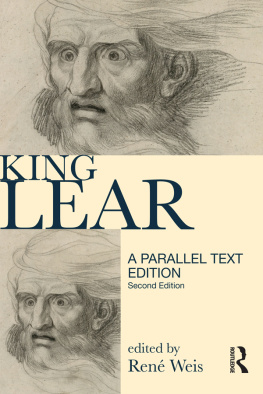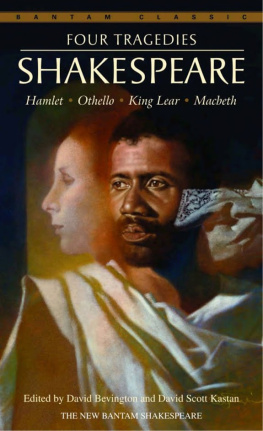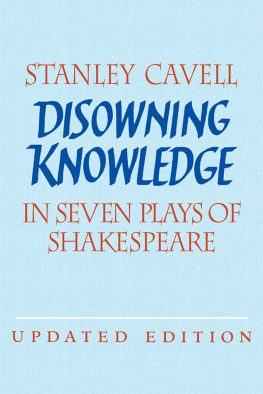Table of Contents
This book is for Allan Macdonald
Requiescat a labore
Doloroso et amore
Shakespeare: An Overview
Biographical Sketch
Between the record of his baptism in Stratford on 26 April 1564 and the record of his burial in Stratford on 25 April 1616, some forty official documents name Shakespeare, and many others name his parents, his children, and his grand-children. Further, there are at least fifty literary references to him in the works of his contemporaries. More facts are known about William Shakespeare than about any other playwright of the period except Ben Jonson. The facts should, however, be distinguished from the legends. The latter, inevitably more engaging and better known, tell us that the Stratford boy killed a calf in high style, poached deer and rabbits, and was forced to flee to London, where he held horses outside a playhouse. These traditions are only traditions; they may be true, but no evidence supports them, and it is well to stick to the facts.
Mary Arden, the dramatists mother, was the daughter of a substantial landowner; about 1557 she married John Shakespeare, a tanner, glove-maker, and trader in wool, grain, and other farm commodities. In 1557 John Shakespeare was a member of the council (the governing body of Stratford), in 1558 a constable of the borough, in 1561 one of the two town chamberlains, in 1565 an alderman (entitling him to the appellation of Mr.), in 1568 high bailiffthe towns highest political office, equivalent to mayor. After 1577, for an unknown reason he drops out of local politics. What is known is that he had to mortgage his wifes property, and that he was involved in serious litigation.
The birthday of William Shakespeare, the third child and the eldest son of this locally prominent man, is unrecorded, but the Stratford parish register records that the infant was baptized on 26 April 1564. (It is quite possible that he was born on 23 April, but this date has probably been assigned by tradition because it is the date on which, fifty-two years later, he died, and perhaps because it is the feast day of St. George, patron saint of England.) The attendance records of the Stratford grammar school of the period are not extant, but it is reasonable to assume that the son of a prominent local official attended the free schoolit had been established for the purpose of educating males precisely of his classand received substantial training in Latin. The masters of the school from Shakespeares seventh to fifteenth years held Oxford degrees; the Elizabethan curriculum excluded mathematics and the natural sciences but taught a good deal of Latin rhetoric, logic, and literature, including plays by Plautus, Terence, and Seneca.
On 27 November 1582 a marriage license was issued for the marriage of Shakespeare and Anne Hathaway, eight years his senior. The couple had a daughter, Susanna, in May 1583. Perhaps the marriage was necessary, but perhaps the couple had earlier engaged, in the presence of witnesses, in a formal troth plight which would render their children legitimate even if no further ceremony were performed. In February 1585, Anne Hathaway bore Shakespeare twins, Hamnet and Judith.
That Shakespeare was born is excellent; that he married and had children is pleasant; but that we know nothing about his departure from Stratford to London or about the beginning of his theatrical career is lamentable and must be admitted. We would gladly sacrifice details about his childrens baptism for details about his earliest days in the theater. Perhaps the poaching episode is true (but it is first reported almost a century after Shakespeares death), or perhaps he left Stratford to be a schoolmaster, as another tradition holds; perhaps he was moved (like Petruchio in
The Taming of the Shrew) by
Such wind as scatters young men through the world,
To seek their fortunes farther than at home
Where small experience grows. (1.2.49-51)
In 1592, thanks to the cantankerousness of Robert Greene, we have our first reference, a snarling one, to Shakespeare as an actor and playwright. Greene, a graduate of St. Johns College, Cambridge, had become a playwright and a pamphleteer in London, and in one of his pamphlets he warns three university-educated playwrights against an actor who has presumed to turn playwright:
There is an upstart crow, beautified with our feathers, that with his tigers heart wrapped in a players hide supposes he is as well able to bombast out a blank verse as the best of you, and being an absolute Johannes-factotum [i.e., jack-of all-trades] is in his own conceit the only Shake-scene in a country.
The reference to the player, as well as the allusion to Aesops crow (who strutted in borrowed plumage, as an actor struts in fine words not his own), makes it clear that by this date Shakespeare had both acted and written. That Shakespeare is meant is indicated not only by Shake-scene but also by the parody of a line from one of Shakespeares plays, 3 Henry VI: O, tigers heart wrapped in a womans hide (1.4.137). If in 1592 Shakespeare was prominent enough to be attacked by an envious dramatist, he probably had served an apprenticeship in the theater for at least a few years.
In any case, although there are no extant references to Shakespeare between the record of the baptism of his twins in 1585 and Greenes hostile comment about Shake-scene in 1592, it is evident that during some of these dark years or lost years Shakespeare had acted and written. There are a number of subsequent references to him as an actor. Documents indicate that in 1598 he is a principal comedian, in 1603 a principal tragedian, in 1608 he is one of the men players. (We do not have, however, any solid information about which roles he may have played; later traditions say he played Adam in As You Like It and the ghost in Hamlet, but nothing supports the assertions. Probably his role as dramatist came to supersede his role as actor.) The profession of actor was not for a gentleman, and it occasionally drew the scorn of university men like Greene who resented writing speeches for persons less educated than themselves, but it was respectable enough; players, if prosperous, were in effect members of the bourgeoisie, and there is nothing to suggest that Stratford considered William Shakespeare less than a solid citizen. When, in 1596, the Shakespeares were granted a coat of armsi.e., the right to be considered gentlementhe grant was made to Shakespeares father, but probably William Shakespeare had arranged the matter on his own behalf. In subsequent transactions he is occasionally styled a gentleman.
Although in 1593 and 1594 Shakespeare published two narrative poems dedicated to the Earl of Southampton, Venus and Adonis and The Rape of Lucrece, and may well have written most or all of his sonnets in the middle nineties, Shakespeares literary activity seems to have been almost entirely devoted to the theater. (It may be significant that the two narrative poems were written in years when the plague closed the theaters for several months.) In 1594 he was a charter member of a theatrical company called the Chamberlains Men, which in 1603 became the royal company, the Kings Men, making Shakespeare the kings playwright. Until he retired to Stratford (about 1611, apparently), he was with this remarkably stable company. From 1599 the company acted primarily at the Globe theater, in which Shakespeare held a one-tenth interest. Other Elizabethan dramatists are known to have acted, but no other is known also to have been entitled to a share of the profits.

